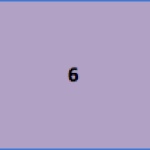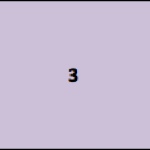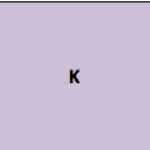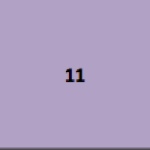Information
-
Audit Title
-
Document No.
-
Client / Site
-
Conducted on
-
Prepared by
-
Location
-
Personnel
Reading Literature
-
Cite textual evidence to support analysis of what the text says explicitly as well as the inferences drawn.
-
Determine a theme or central idea of a text and how it is conveyed through details; provide a summary of the text distinct from personal opinions or judgments.
-
Describe how a particular story's or drama's plot unfolds in a series of episodes as well as how the characters respond or change as the plot moves towards a resolution.
-
Determine the meaning of words and phrases as they are used in a text, including figurative and cnnotative meanings; analyze the impact of specific word choice on meaning and tone.
-
Analyze how a particular sentence, chapter, scene, or stanza fits into the overall strucutre of a text and contributes to the development of the theme, setting or plot.
-
Explain how an author develops the point of view of the narrator or speaker.
-
Compare and contrast the experiences of reading a story, drama, or poem to listening to or viewing an audio, video, or live version of the text, including contrasting what they "see" and "hear".
-
Compare and contrast stories in the same genre on their approach to similar themes and topics.
-
Read and comprehend literature of appropriate complexity.
Reading Informational Text
-
Cite textual evidence to support analysis of what the text says explicitly as well as inferences drawn.
-
Determine a central idea of a text and how it is conveyed through details; provide a summary of the text distinct from personal opinions or judgments.
-
Analyze how a key individual, event, or idea is introduced, illustrated, and elaborated.
-
Determine the meaning of words and phrases as they are used in a text, including figurative, connotative, and technical meanings.
-
Analyze how a particular sentence, chapter, or section fits into the overall structure of a text and contributes to the development of the ideas.
-
Determine an author's point of view or purpose in a text and explain how it is conveyed in the text.
-
Integrate information presented in different media or formats as well as in words to develop a coherent understanding of a topic or issue.
-
Trace and evaluate the arugment and specific claims in a text, distinguishing claims that are supported not by reasons and evidence from claims that are not.
-
Compare and contrast one author's presentation of events with that of another.
-
Read and comprehend literary nonfiction in the grades 6-8 text complexity band proficiently, with scaffolding as needed at the high end of the range.
Writing
-
Write arguments to support claims with clear reasons and evidence.
-
Write informative/explanatory texts to examine a topic and convey ideas, concepts, and information through the selection, orgnaization, and analysis of relevant content.
-
Write narratives to develop real or imagined experiences or events using effective technique, relevant descriptive details, and well-structured event sequences.
-
Use technology to produce and publish writing.
-
Develop and strengthen writing as needed by planning, revising, editing, rewriting, or trying a new approach.
-
Produce clear and coherent writing in which the development and organization are appropriate to task, purpose, and audience.
-
Conduct short research projects to answer a question drawing on several sources and refocusing the inquiry when appropriate.
-
Gather relevant information from multiple sources; assess the credibility of each source; and quote or paraphrase the data and conclusions of others while avoiding plagiarism and providing basic bibliographic information for sources.
-
Draw evidence from literary or informational texts to support analysis, reflection, and research.
-
Write routinely over extended time frames and shorter time frames for a range of discipline-specific tasks, purposes, and audiences.
Speaking and Listening
-
Engage effectively in a range of group discussions with diverse partners on grade 6 topics, texts, and issues, building on others' ideas and expressing their own clearly.
-
Interpret information presented in diverse media and formats and explain how it contributes to a topic, text, or issue under study.
-
Delineate a speaker's arugment and specific claims, distinguishing claims that are supported by reasons and evidence from claims that are not.
-
Present claims and findings, sequencing ideas logically and using pertinent descriptions, facts, and details to accentuate main ideas or themes; use appropriate eye contact, adequate volume, and clear pronunciation.
-
Include multimedia components and visual displays in presentations to clarify information.
-
Adapt speech to a variety of contexts and tasks, demonstrating command of formal English when indicated or appropriate.
Language Standards
-
Demonstrate command of English grammar and usage.
-
Demonstrate command English capitaliation, punctuation, and spelling.
-
Clarify the meaning of unkonw and multiple-meaning words and phrases based on grade-6 reading and content, choosing flexibly froma a range of strategies.
-
Demonstrate understanding of figurative language, word relationships, and nuances in word meaning.
-
Acquire and use accurately grade-appropriate general academic and domain-specific words and phrases; gather vocabulary knowledge when considering a word or phrase important to comprehension or expression.
-
Use knowledge of language and its conventions when writing, speaking, reading, or listening.










